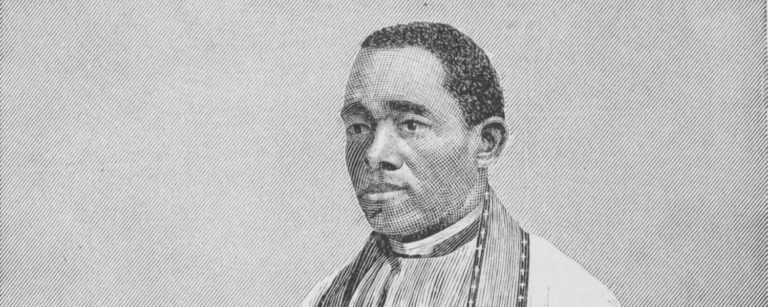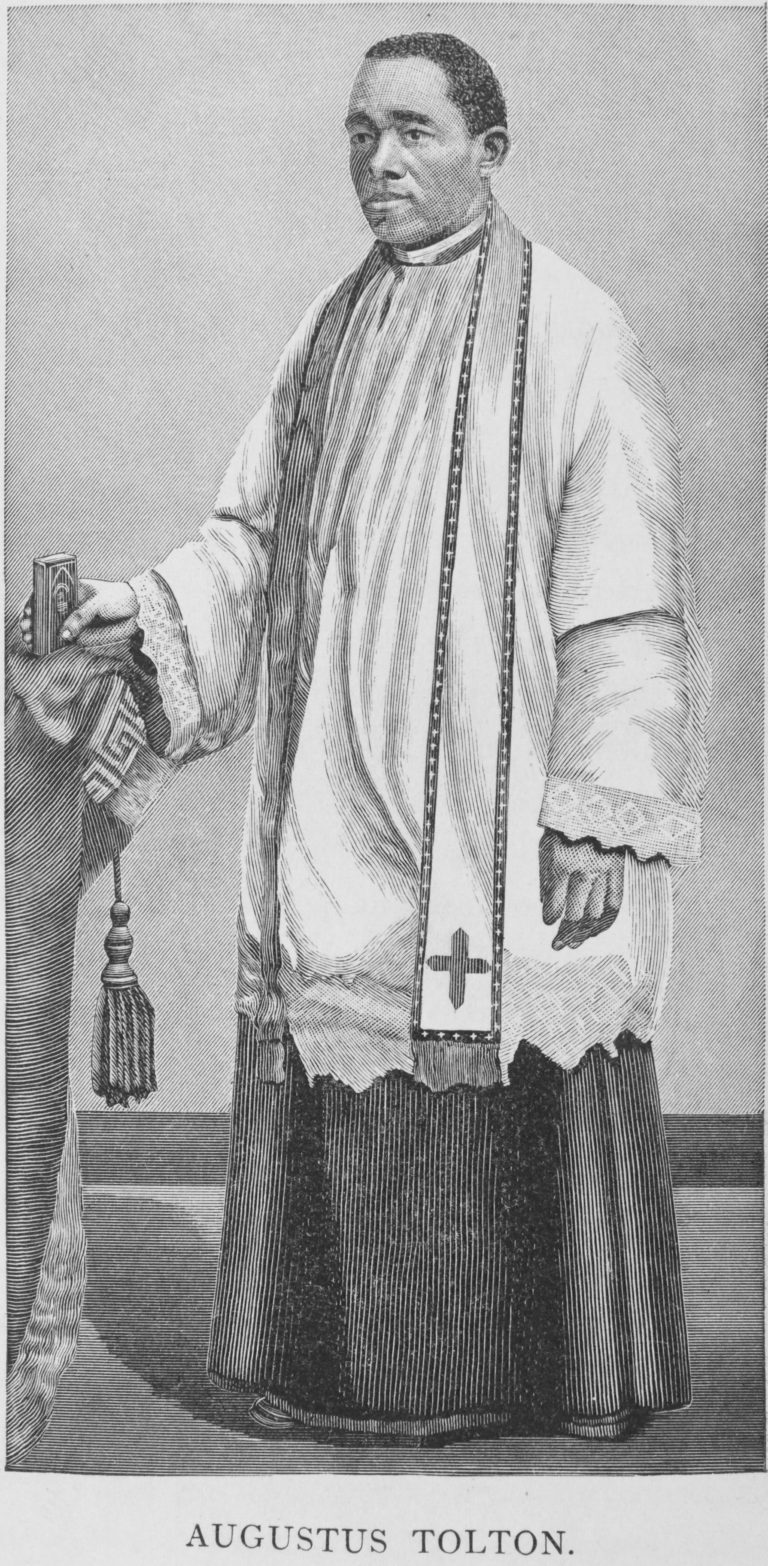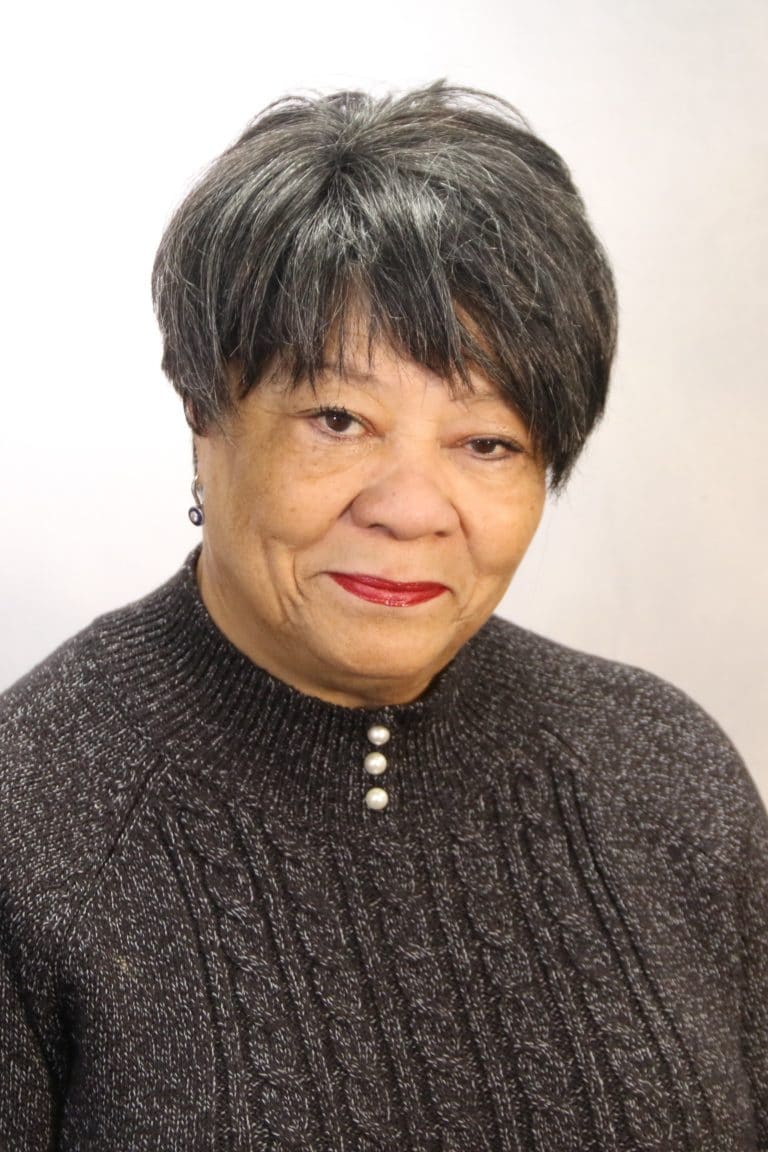Office director reflects on Black Catholic History Month in 2020

BY F. VERONICA WILHITE, OFFICE OF BLACK CATHOLIC MINISTRY
Each year in November we celebrate the history of Black Catholics and honor those of African descent who have and continue to contribute to the evangelization of Blacks in the Church. Many Catholics still do not recognize this month and are unaware of its instigation by the National Black Catholic Clergy Caucus of the United States in 1990. Since we celebrate the feast day of St. Martin de Porres – the only American saint of African descent – on November 3, and the birthday of the prominent African saint and Doctor of the Church, Augustine of Hippo, on November 13, this month was chosen.
Hopefully, we are all aware as Catholics of the three African popes, Sts. Victor I, Melchaides and Gelasius I in our history who led the early Church through much turmoil. Perhaps even some of the African saints besides St. Augustine and his mother, St. Monica – such as St. Charles Lwanga, leader of the 22 martyrs of Uganda and patron saint of African Catholic Youth Action, converts, and torture victims; St. Josephine Bakhita, patron saint of Sudan and human trafficking survivor; and St. Kizito, the youngest of the 22 Ugandan martyrs, the patron saint of children and primary schools… to name a few.
As a sixth-generation Black “cradle Catholic” from slavery and a product of Catholic education from kindergarten through college, I am saddened by the lack of inclusion of the truths of the roles and significance of Blacks in our Church history and our teachings in Church history in my education. I was an adult before I knew that Sts. Augustine and Monica were Black. The only Black person we knew about was Martin de Porres who was a blessed at the time, but not a saint.
According to Catholic.org, “By the time (St. Martin) died, he was widely known and accepted. Talks of his miracles in medicine and caring for the sick were everywhere. After his death, the miracles received when he was invoked in such greatness that when he was exhumed 25 years later, his body exhaled a splendid fragrance and he was still intact.”
And according to NotableBiographies.com, “Despite his renown throughout Latin America, recognition from the Catholic church was slow to come. In 1837 he was beatified, and his feast day is celebrated on November 3. He was canonized as a saint by Pope John XXIII on May 6, 1962, with a contingent of 350 African-American Catholics in attendance.”
He is the patron saint of people of mixed race, innkeepers, barbers, public health workers and more.

Why was the only Black/Hispanic candidate for sainthood from the Americas not canonized for 199 years and then suddenly canonized during the civil rights movement? While Black and Hispanic Catholics celebrated this long-overdue canonization of a holy man venerated by millions for generations, it was an historic milestone which also emphasized the institutional racism in the Catholic Church. My impression is that Blacks have been frequently considered incapable of the holiness of sainthood – just as we were not believed to be “called” to the vocations of priesthood and sisterhood (and therefore historically denied consideration for admission to white Catholic convents and seminaries, just as Black children were not allowed admission to white Catholic schools).
In response to these racist practices, Black Catholics produced their own set of heroes and trailblazers in religious formation and education for Blacks, including the women who started two orders of Black Catholic nuns before the Civil War. Mother Mary Lange, who co-founded the Oblate Sisters of Providence in Baltimore in 1829, and Henriette DeLille, who founded the Sisters of the Holy Family in New Orleans in 1842. Both are among six Black Catholic Americans formally placed in the canonization process that could lead to sainthood. Both orders remain active, and have been pioneers in teaching Black history at the schools they run.
After the Civil War, two orders were formed to serve Blacks. One is the Sisters of the Blessed Sacrament, founded by St. Katharine Drexel, an American heiress, philanthropist and religious sister. She established numerous schools for Blacks and Indians including Xavier University of Louisiana – the only Black Catholic university in the U.S. and HBCU (Historically Black Colleges and Universities) of which I am a proud alumnae. Canonized in 2000, her feast day is celebrated on March 3. She was the second U.S.-born citizen to be canonized a saint.
The other order formed to serve Blacks is the Society of St. Joseph of the Sacred Heart, a society of Catholic priests and brothers headquartered in Baltimore. The members are called Josephites and work specifically among Blacks. They were formed in 1893 by a group of Mill Hill priests working with Blacks emancipated during the American Civil War and continue their work today.
Historically, the Diocese of Owensboro, founded in 1937, was racially segregated until 1959. Two Black churches, Blessed Sacrament Chapel (Owensboro) and Rosary Chapel (Paducah) were established in the 1940s and both are still open today. Both schools were closed in the early 1960s.

This year 2020 is a continuous series of wake-up events that will either unite us in our faith or divide us racially and philosophically. COVID has divided us spatially. The Church has deemed racism as a sin. Our bishop has committed our diocese to addressing this issue. In that effort I am asking each of you regardless of your race to reflect on your understanding of race and to share your experiences or what you consider lack in your experiences with people of color or with whites. I am asking you to send your responses to my office by mail: Office of Black Catholic Ministry, 600 Locust St., Owensboro, KY 42301. Or by email: Veronica.Wilhite@pastoral.org. Please note if you are willing to share or participate in a discussion group.
In the quest for recognition of past and present “saints,” I would appreciate and am requesting nominations for Blacks whom you have known personally who exemplified Christian behavior. They can be alive or deceased. This is for a future project of the Office of Black Catholic Ministry. Please submit by Nov. 30 with your name, email address and phone number to my contact information above.
Finally, I am requesting that each of you pray especially for the six Black American candidates for sainthood in acknowledgement that we are all worthy and capable of holiness and that we are united in our faith in Christ: Venerable Pierre Toussaint; Venerable Fr. Augustus Tolton; Venerable Henriette DeLille; Servant of God Mother Mary Lange; Servant of God Julia Greeley and Servant of God Thea Bowman.
F. Veronica Wilhite is the director of the Diocese of Owensboro’s Office of Black Catholic Ministry.
Originally printed in the November 2020 issue of The Western Kentucky Catholic.
Copyright © 2020 Diocese of Owensboro/The Western Kentucky Catholic
